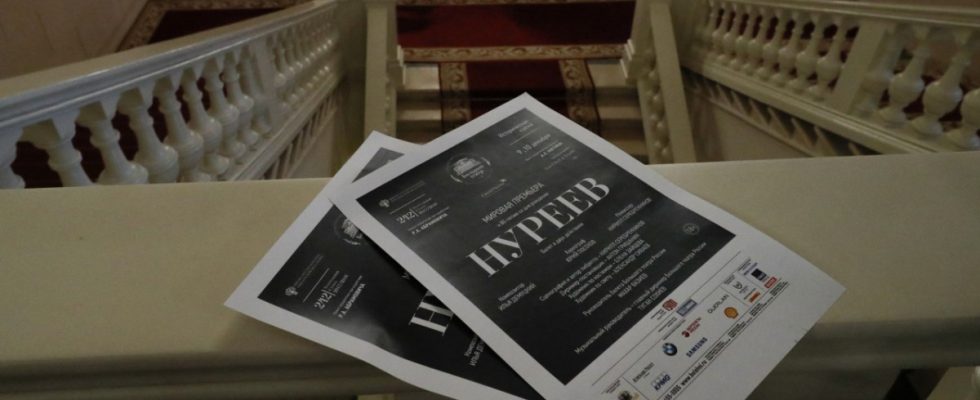The Moscow Bolshoi Ballet has taken Kirill Serebrennikov’s ballet “Nureyev” out of its repertoire, and the only logical reaction is actually: Only now? The director Kirill Serebrennikow produces all over the world and now lives abroad, in Germany or France. The titular hero, Rudolf Nureyev, was a queer Soviet refugee who died of AIDS in Paris in 1993. Portraying or even mentioning homosexuality has had a tough time in Russia for years, and it’s gotten even tougher since President Vladimir Putin signed legislation in December that already criminalizes mentioning Russia’s LGBT community with hefty fines.
For “Nureyev” it was a death on installments. The Bolshoi had not played the play for a year, and Serebrennikov’s name had been removed from the Bolshoi homepage. This was welcomed by the Russian Ministry of Culture, which said it was “absolutely logical” to remove the names of people from announcements who had “broke away from Russia”.
Bolshoi director Vladimir Utkin presented the removal of “Nureyev” from the repertoire in Moscow as a step without alternative. As far as the “propaganda of non-traditional values” is concerned, the law is clear, according to Utkin: “It was only natural that the theater decided to remove the play from the repertoire immediately after the law was signed”.
“Nureyev” has always been a problem for the conservative elites, in other words, a measure of artistic freedom and freedom of love in Russia. Even the premiere in 2017 was a nail-biter. At the time, Serebrennikov was under house arrest after being accused of embezzling funds. He followed the rehearsals from afar and was not allowed to come to the premiere.
A Kremlin spokesman spoke at the time of a “world event” – unthinkable today
On the instructions of the then Minister of Culture Vladimir Medinsky – a figure hated by cultural workers – the performance was postponed for months, which only increased the tension. The premiere itself was a society event. Celebrities from culture, politics and business cheered the rigged, elaborate spectacle of ballet, singing, acrobatics and recitations. At the end, the artists appeared in front of the curtain wearing Serebrennikov T-shirts and demanded “freedom for the director”. And despite this rebellious gesture, Kremlin spokesman Dmitry Peskov called “Nureyev” a “world event.” All of this would of course be completely unthinkable today.
At the head of the culture ministry is Olga Lyubimova, a politician known for her contempt for opera and ballet. Even before the war, she formulated guidelines for the consolidation of traditional Russian values, which can be roughly summarized as self-sacrificing patriotism. Many intellectuals and artists fled abroad.
Others have been marginalized despite excellence and willingness to adapt. In February, the internationally respected director of Moscow’s Tretyakov Gallery, Selfira Tregulova, was replaced by the daughter of a former secret service official. In March it hit Marina Loschak, director of the Pushkin Museum in Moscow. In her place, the Ministry of Culture installed Yelizaveta Likhacheva, who had headed the Shchusev Architectural Museum. Before that, however, as investigative site Agentstvo found out, she had worked as a police officer. She was also temporarily employed by the Kremlin youth movement “Get Together”. It was a miracle that “Nureyev” was able to stay in the Bolshoi repertoire for so long in this climate.

